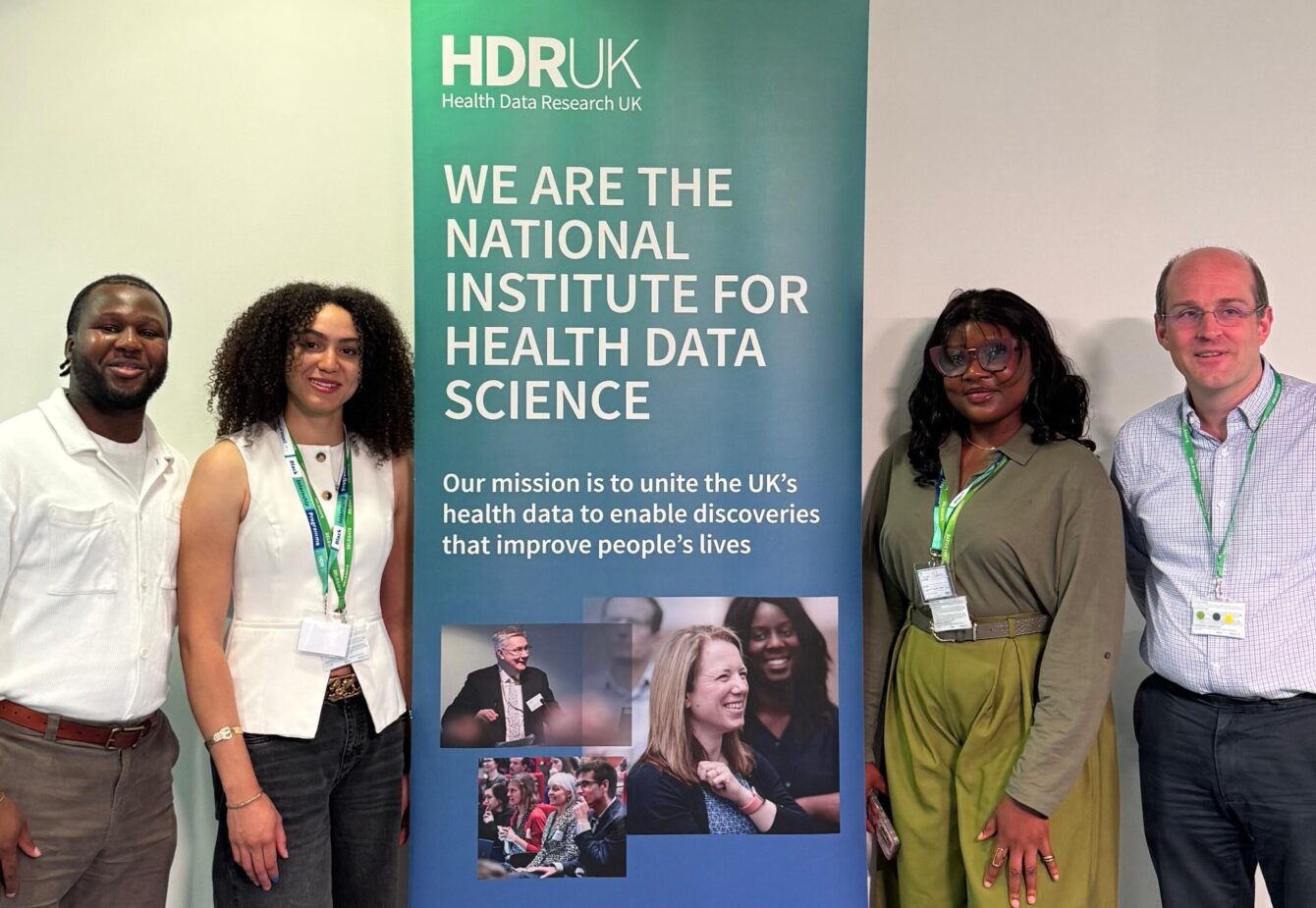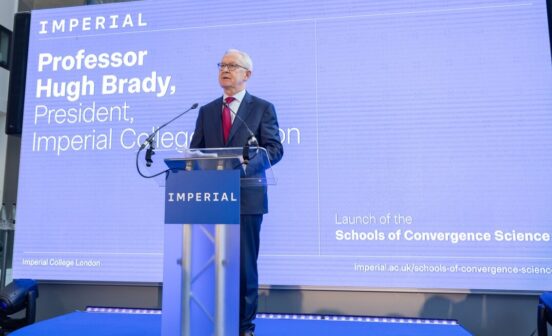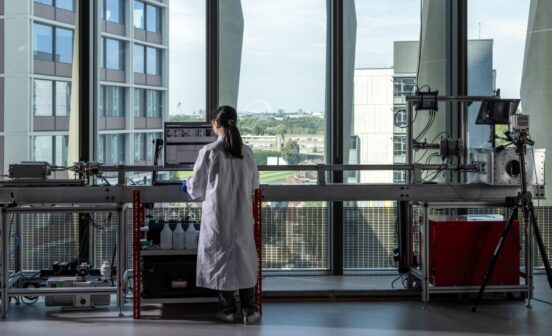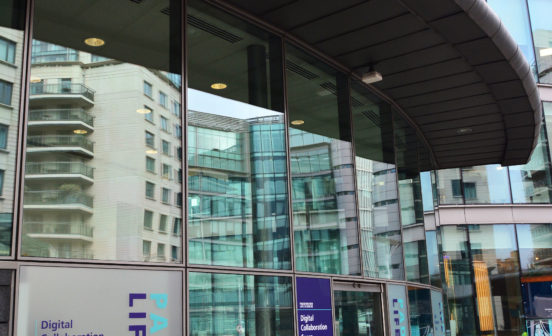EDI Advancing Health Data Science: Insights from an HDR UK Internship at iCARE

Tasher Smith is a master’s student in Biomedical Science at the University of Sussex. This summer, she joined iCARE through the Health Data Research UK Black Internship Programme.
“I came across the internship by accident while looking for jobs,” Tasher explains. “I discovered the 10,000 Black Interns programme, applied, and was delighted to be accepted onto the HDR UK internship and matched with iCARE. It felt surreal, because I had almost expected a rejection.”
Tasher, who will graduate in January 2026, has long been interested in data and bioinformatics. During her undergraduate studies, she took part in Code First Girls courses in Python and SQL, and later completed a summer data analysis course that confirmed her interest in health data. “Even when my undergraduate project did not go as planned, it did not put me off,” she recalls. “I still wanted to pursue this field.”
Her current master’s dissertation focuses on LASP1, a protein linked to HPV-associated cancers, particularly cervical cancer. The project examines phosphorylation sites in the protein and how they may influence cell cycle regulation and DNA damage responses. Alongside this, Tasher has been gaining first-hand experience in health data research through her internship at iCARE.
ICARE hosts the healthcare data of 2.7 million people in North West London, spanning Imperial College London and Imperial College Healthcare Trust. Its interdisciplinary team uses deidentified data to drive research for improved patient outcomes as part of the Imperial Biomedical Research Centre, funded by the National Institute for Health and Care Research. It is part of the Paddington Life Sciences innovation cluster, and projects include digital diabetes wards, cervical cancer prevention, and Covid-19 vaccination studies.
Exploring health data at scale
At iCARE, Tasher joined a project examining venous thromboembolism (VTE) and the NHS risk assessment form used to identify patients at risk. “Coming from a biomedical background, I was already familiar with VTE, so it felt like a good fit,” she says. Her work involved analysing how clinicians interact with the form, whether its design supports decision-making, and how well it contributes to patient outcomes.
She and the team also looked at patients with confirmed VTE risk, their prescriptions, and associated risk factors, to identify distinct patient profiles. Another strand of the project explored how artificial intelligence might eventually pre-fill the form, reducing the time clinicians spend on routine tasks.
The internship also introduced Tasher to powerful new tools and secure data environments. “Before this, I had never heard of Snowflake, or used a secure data environment,” she explains. “Working with thousands of rows of real NHS data was incredible—it made me reflect on the responsibility that comes with analysing information about real people.”
Learning to navigate platforms such as Snowflake and Azure ML was a steep but rewarding learning curve. “At first it was difficult, but it was exciting too. It made me think about the future: how health data might be standardised across the UK or even Europe, and what role AI will play in shaping healthcare in the next decade.”
Mentorship and inspiration
Mentoring Tasher has been an important experience for Toheeb Sadiq, who joined iCARE as a data scientist after completing the same HDR UK Black Interns programme. “From the start of her internship, she was eager to learn and quickly grasped the technical aspects of the VTE risk assessment project. Over the weeks, I have seen her grow in confidence, not just in coding and analysis but also in presenting her work and sharing ideas with the team,” he said.
Tasher’s exploratory analysis of user behaviour in the VTE form, focused on assessments since the most recent update, has already added valuable insight and complements Phase 1 work previously carried out by the iCARE team. For Toheeb, this has been especially meaningful: “I could relate to her journey — the challenges of getting used to real-world healthcare data, and the excitement of seeing her work potentially contributing to the overall project.”
Toheeb knows firsthand the difference an internship can make. His own HDR UK placement was a pivotal experience that propelled his career in health data science. During that programme, he worked on two projects: first, an exploratory data analysis with the iCARE team, focusing on preventing in-hospital harm for patients with diabetes; and second, a collaborative lung cancer data project that went on to win the HDR UK Technical Challenge prize. He also presented this work at the HDR UK 2024 internship closing ceremony.
Reflecting on those experiences, Toheeb emphasises the importance of mentoring new interns: “My internship gave me the confidence that a career in health data science was right for me, and I was fortunate to join iCARE as a data scientist shortly after. That journey has shaped my commitment to supporting and guiding the next generation of interns.”
Looking ahead
The experience has reinforced Tasher’s ambition to build a career in data science. “I would love to find a job that mirrors this internship, where I can continue working with Python, SQL, and healthcare data in a diverse, welcoming team,” she says. “I could see myself moving further into bioinformatics or into broader data analysis, but either way I want to keep building on this foundation.”
She also appreciated the culture she found at iCARE. “During the HDR introduction, we were told to expect formal business dress. But when I arrived, someone said, ‘Dress code? I do not think there is one here.’ People dress appropriately, but comfortably, which creates such a relaxed and supportive environment. It makes a real difference when you are working at your desk.”
Reflecting on her journey so far, Tasher is determined not to let her skills waver. “Now that I have started, I do not want to just move on and forget it. I want to stay in this field and keep developing. This internship has been a huge step forward, and it has made me even more excited about where healthcare data can take us.”
Closing ceremony
Tasher’s internship ended with a full day of HDR UK activities, including a technical challenge which was judges by among others Toheeb since his team won the technical challenge the year before. Toheeb and Tasher were joined by iCARE Director Erik Mayer, who has supported the internship for more than three years. Other interns also showcased their research projects in a poster competition, before the day rounded out with a closing ceremony.





